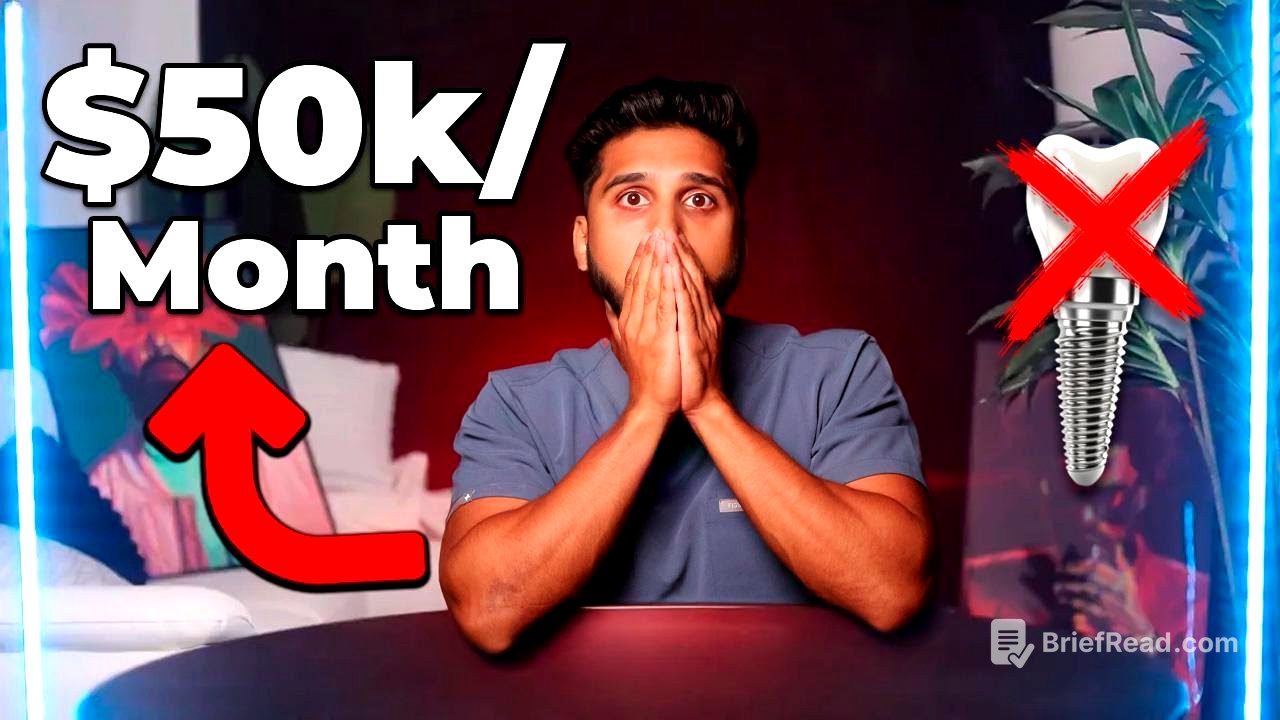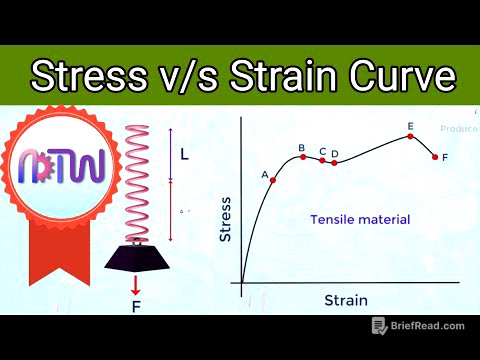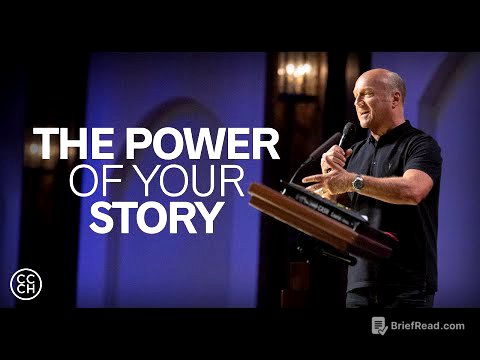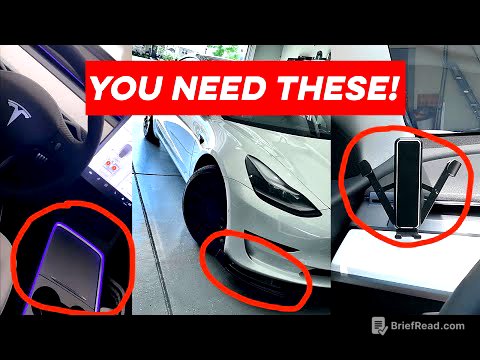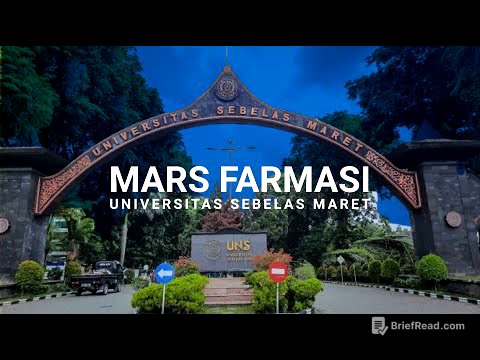TLDR;
This video explains how to achieve a high income in dentistry without becoming a "super GP" (a general practitioner who performs a wide range of specialty procedures). The key strategies include relocating to less saturated areas, increasing speed and efficiency in performing common procedures, delegating tasks to assistants, reducing reliance on insurance, and ultimately, owning a dental practice.
- Moving to less saturated market
- Increasing speed and efficiency
- Delegating tasks
- Reducing reliance on insurance
- Owning a dental practice
Intro [0:00]
The video addresses the common question of whether it's possible to earn a substantial income in dentistry without performing complex specialty procedures. The speaker shares his personal experience of making over $300,000 in his first year out of dental school by focusing on basic procedures. He challenges the notion that becoming a "super GP" is the only path to high earnings in the field.
Relocating to a Less Saturated Market [1:12]
Moving away from major cities to areas with less competition is the easiest way to increase income. The speaker moved from Manhattan, a highly saturated market, to a less saturated, high-demand area after graduating from NYU. This move was crucial to achieving a high income as a new dentist, despite performing only basic procedures like extractions, crowns, bridges, and dentures. Working in corporate offices can also maximize a doctor's time and efficiency, leading to higher earnings.
Speed and Efficiency [2:26]
Speed is essential for earning a high income without performing complex procedures. The speaker emphasizes the importance of improving efficiency in performing common procedures like crown preparations. Using bigger burs and avoiding excessive second-guessing can significantly reduce the time required for each procedure. Crowns are highlighted as the most lucrative procedure in dentistry due to their high return on investment (ROI).
Delegation [3:38]
Delegating tasks that don't directly produce revenue is crucial for maximizing efficiency and income. The speaker delegates tasks like packing cords and scanning temps to assistants, allowing him to focus on higher-level tasks like cutting teeth for crowns. He also points out that assistants and hygienists often perform certain tasks better due to their specialized focus and experience.
Insurance [4:21]
Insurance companies are portrayed as detrimental to dentists due to claim denials, reduced reimbursements, and devaluation of their time. The speaker advocates for reducing reliance on insurance to build wealth more easily. In areas where insurance is less prevalent, dentists can set their own prices and avoid significant write-offs, leading to higher profits.
Ownership [5:57]
Owning a dental practice is presented as the ultimate goal for maximizing income and autonomy. The benefits of ownership include tax write-offs, passive income opportunities (e.g., from the hygiene department), and full control over one's schedule. The speaker expresses a desire to transition from being an associate to an owner to gain more control over his career and build his own dream.
Conclusion [7:23]
The video concludes by reiterating that it's possible to achieve a great living in dentistry without being a "super GP" by implementing the strategies discussed. These include moving to less saturated areas, owning a practice, and reducing reliance on insurance.
